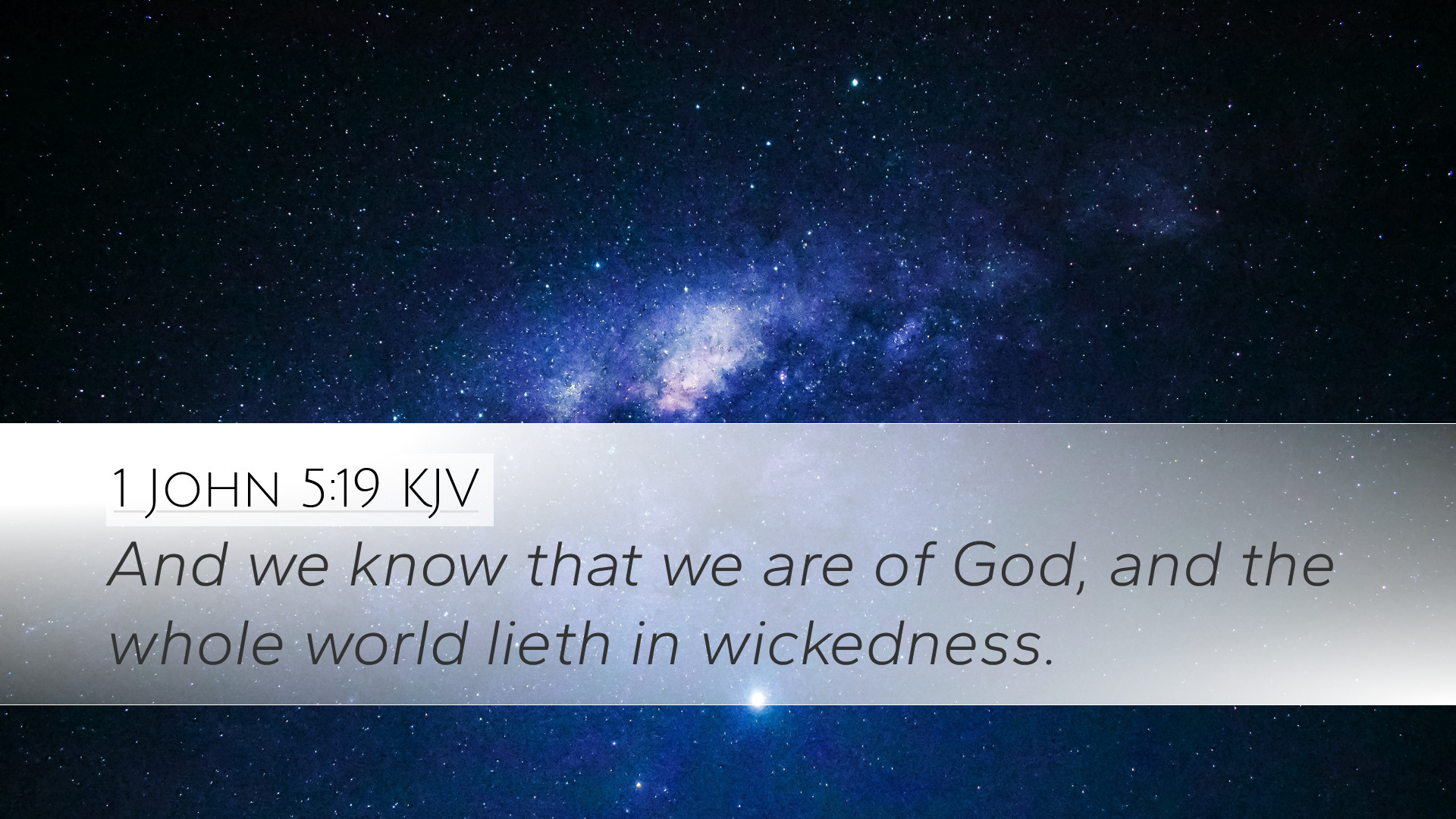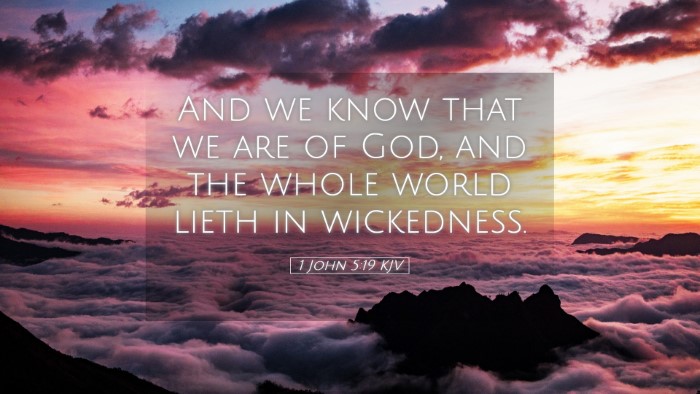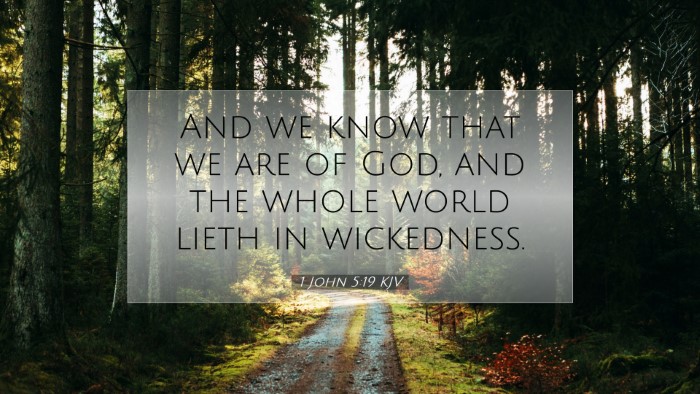Old Testament
Genesis Exodus Leviticus Numbers Deuteronomy Joshua Judges Ruth 1 Samuel 2 Samuel 1 Kings 2 Kings 1 Chronicles 2 Chronicles Ezra Nehemiah Esther Job Psalms Proverbs Ecclesiastes Song of Solomon Isaiah Jeremiah Lamentations Ezekiel Daniel Hosea Joel Amos Obadiah Jonah Micah Nahum Habakkuk Zephaniah Haggai Zechariah Malachi1 John 5:19
1 John 5:19 KJV
And we know that we are of God, and the whole world lieth in wickedness.
1 John 5:19 Bible Commentary
Commentary on 1 John 5:19
1 John 5:19 states, "We know that we are of God, and the whole world lies in wickedness." This verse is profound in its implications for Christians, as it contrasts the nature of believers with the condition of the world. In this commentary, we will explore its meaning, implications, and applications based on insights from renowned public domain commentaries.
Contextual Overview
This verse concludes the Apostle John's first epistle, which is a letter rich in theological depth and practical application. John addresses issues of heresy, sin, and assurance of faith, grounding believers in their identity as children of God. The contrast he sets up between the followers of Christ and the world is crucial for understanding the believer's position in a fallen society.
Meaning of "We know that we are of God"
Assurance of Salvation: John begins this verse with a strong declarative phrase, emphasizing the certainty of believers' knowledge of their standing with God. Matthew Henry asserts that this confidence arises from the witness of the Holy Spirit and the transformation that comes through faith in Christ. This assurance is foundational for believers in facing the challenges of life.
Identity as Children of God: Albert Barnes expands on this, noting that being "of God" denotes a relationship characterized by love, obedience, and a sense of belonging. This identity is contrasted against the broader context of the world, indicating a chosen people set apart for God's purposes. The implications of this familial relationship encourage believers to live in accordance with their divine heritage.
The Reality of the World "lies in wickedness"
The Nature of the World: The phrase "the whole world lies in wickedness" presents a stark picture of the human condition. Adam Clarke explains that "world" here signifies the system of values and practices that oppose God. This moral depravity envelops human existence, illustrating a universal plight due to sin.
Spiritual Warfare: Both Henry and Barnes highlight that this wickedness suggests a state of spiritual bondage. The world is not merely a neutral place; it is under the influence of the evil one, highlighting the necessity for believers to engage in spiritual warfare. This underscores the importance of vigilance and the call for a distinct lifestyle that reflects one’s identity in Christ.
Theological Implications
This verse presents significant theological themes relevant to the understanding of sin, salvation, and spiritual warfare:
- The Sovereignty of God: The assurance that we are "of God" points to His sovereign choice and purpose in our lives, which frames our existence amid a broken world.
- The Nature of Sin: The depiction of the world as lying in wickedness reflects an understanding of sin's pervasive nature. Sin is not merely an action but a condition affecting humanity.
- Hope in Christ: Despite the bleakness of the world, the believer's identity in Christ offers hope and power to overcome the wickedness that surrounds us.
Practical Applications
The implications of 1 John 5:19 extend into daily Christian living. Here are several practical applications:
- Live in Assurance: Believers are encouraged to embrace the assurance of their salvation and to live out their identity in Christ, promoting peace and stability in their spiritual journey.
- Engage the World Effectively: While acknowledging the wickedness of the world, Christians are called to be agents of change—spreading the Gospel and living lives that reflect God's love and truth.
- Maintain Vigilance: Recognizing the influence of evil requires vigilance in spiritual disciplines such as prayer, study of Scriptures, and community engagement to resist temptation and worldly influence.
Conclusion
1 John 5:19 serves as a sobering reminder of the dichotomy between the assurance of God's children and the chaotic state of the world. By reflecting on the insights provided by commentators such as Matthew Henry, Albert Barnes, and Adam Clarke, believers can deepen their understanding of their faith and be more equipped to navigate the complexities of life. Ultimately, this verse calls the faithful to live confidently and purposefully, rooted in their identity as children of God while actively participating in God's redemptive plan for the world.


